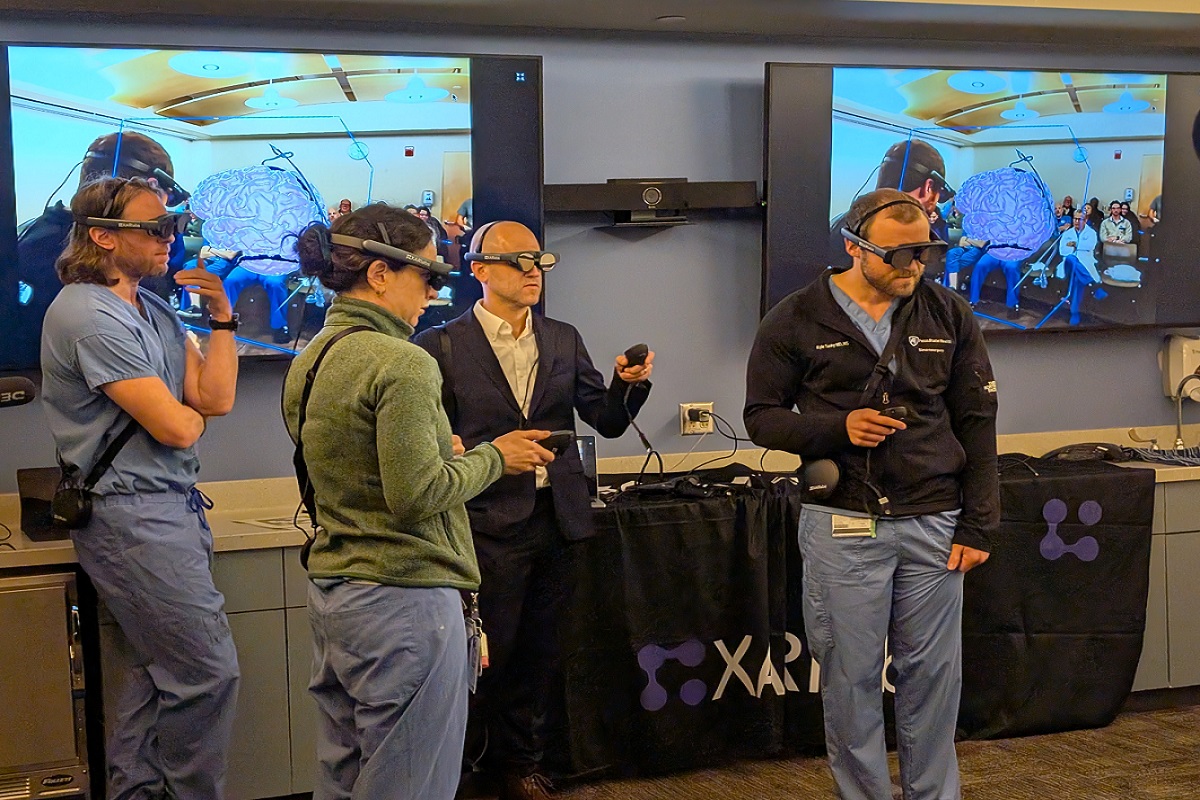Faculty, trainees get unique, long-distance learning experience through mixed reality case review

Faculty and trainees in the Department of Neurosurgery at Penn State College of Medicine and the Penn State Health Milton S. Hershey Medical Center joined with a team from Imperial College Healthcare NHS Trust in London, England for a fully remote, multi-institution neurosurgical case discussion in mixed reality (MR).
Collaborating with XARlabs and their innovative simXAR tool, two teams of neurosurgeons wearing MR headsets (each based in a separate continent) presented and discussed a patient case virtually by interacting with a high-resolution 3D hologram-like image of a patient scan. This event demonstrated how cutting-edge immersive tools are transforming the way healthcare professionals can connect, share knowledge, and learn despite being thousands of miles apart.
The teams reviewed different surgical strategies for two cases, one from each participating hospital. They worked to tackle a challenging blood vessel malformation at the base of the skull and a complex tumor extending from the eye socket to the brain.
Working with XARlabs’ technology, the teams can bring traditional 2D patient scans to life, converting them into 3D augmented reality models. The neurosurgeons, based at St Mary’s Hospital in London and the Milton S. Hershey Medical Center, were able to interact with the model, zooming in, rotating, or even ‘walking’ inside to visualize the patient’s anatomy in an immersive and easily understandable way.
“Augmented reality is transforming the way we approach some of our most challenging operations. In the clinic, it’s a powerful tool for education, for both trainees and surgeons,” said Dr. Ephraim Church, a cerebrovascular neurosurgeon at the Milton S. Hershey Medical Center and assistant professor of neurosurgery, neurology, and radiology at Penn State College of Medicine. “For surgeons, it offers the opportunity to rehearse procedures beforehand. In the operating room, it serves as a navigation tool, helping guide our teams through surgery with precision. This technology is revolutionizing how we learn, plan, and perform surgery, and it’s something we’re all eager to explore further.”
If you're having trouble accessing this content, or would like it in another format, please email Penn State Health Marketing & Communications.
